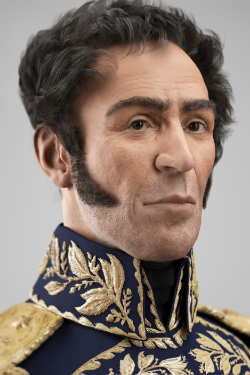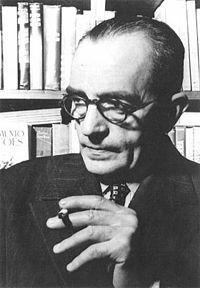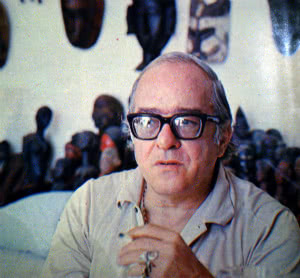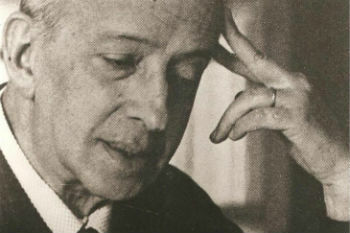Simon Bolivar he was a Venezuelan politician, military leader and revolutionary.
His role was essential for the independence process of several countries in South America: Bolivia, Colombia, Ecuador, Peru and Venezuela.
Bolivar's main objective was to create a great country and he believed in Latin American emancipation.
Based on republican ideals, on popular and participatory democracy, Bolivar was a great supporter of the abolition of slavery.
Therefore, he is considered one of the greatest heroes of Latin America and the greatest liberator of South America.
Biography

Simón José Antonio de la Santísima Trinidad Bolivar and Palacios Ponte-Andrade y Blanco was born on July 24, 1783 in Caracas, Venezuela. At the time, the territory was called the Viceroyalty of New Granada.
Son of aristocrats of Spanish origin, Bolivar had a good education from childhood. He was orphaned when he was 9 years old and since then has been in the custody of his uncle Carlos Palacios.
He entered military school and later went to study in Spain. In Madrid he met Maria Teresa del Toro y Alaysa, whom he married in 1801. However, when he returned to Venezuela in 1807, his wife contracted yellow fever and died shortly thereafter.
From then on, he began to act in his country's politics, helping to achieve independence. Bolivar also visited Mexico, the United States and Cuba. In addition to Spain, in Europe, he also visited France and Italy.
Later, he was in England to participate in a diplomatic mission and ask for financial support, but he was unsuccessful.
When he returned, his focus was on assisting the independence of the South American countries that were under Spanish rule.
Spanish American Independence Process
In Venezuela, Bolivar was an officer in the revolutionary army and participated in several liberation battles against the Spaniards.
At the Battle of Boyacá, which took place in 1819, he freed Colombia from Spanish rule. And at the Battle of Carabobo (1821) Bolivar freed Venezuela.
The following year, with the help of Antonio José de Sucre (1795-1830), one of his army officers, he liberated Ecuador at the Battle of Pichincha.
After the independence victories of the countries of Spanish America, Bolivar became president of Gran Colombia, which united the countries: Venezuela, Colombia and Ecuador.
For him, the idea of uniting South America in a great country was being shaped.
Simon Bolivar and San Martín

Monument of Simón Bolívar and San Martín in Guayaquil, Ecuador
While Bolívar freed some countries from Spanish rule, the Argentine José de San Martín (1778-1850), fought against the troops to free Argentina, Chile and Peru.
After meeting with Martin, the Argentine did not want to join forces with Bolivar. Thus, Martin decided to leave America leaving the responsibility of ending the independence of countries in the hands of Bolivar.
End of Independence
With Sucre's help, Bolivar finally freed the other countries from Spanish rule in 1824. Taking the United States as a model, which managed to form a great nation, Bolivar still had the intention of creating a great Spanish America.
So the revolutionary expected other countries to join Gran Colombia. However, instead, they turned away from Bolivar's idea.
Consequently, several conflicts took place between these countries, and with time Gran Colombia ceased to exist. The tension increased even more, when in 1830 Bolivar resigned from the position.
Read too: Independence of Spanish America.
Bolivar's death
After his resignation, Bolivar was exiled from his country and came to be hated by his enemies. That same year, he went to live in Colombia and died in Santa Marta on December 17, 1830, a victim of tuberculosis.
Over time, his effort and determination was recognized. Today Bolivar is idolized in several countries and considered one of the greatest historical figures in South America.
Bolivarism
Bolivarism designates the set of political and ideological doctrines that are based on the ideas of Simón Bolívar.
Bolivarians are those who follow the ideals outlined by Simón Bolívar. Hugo Chávez, former president of Venezuela, declared that he was a supporter of the revolutionary's ideas.
Bolivarism, among other things, proposes the union of Latin American countries. This aspect is based on the main documents signed by Bolivar: Carta de Jamaica, Discurso de Angostura and Manifesto de Cartagena.
Film
Directed by Alberto Arvelo, the film “O Libertador” was released in 2014 (The Liberator) based on the life and actions of Bolivar.
Bolivar's Phrases
- “Countrymen. Guns will give you independence, laws will give you freedom.”
- “I swear to God, I swear to my parents, and I swear on my honor that I will not rest as long as I live until I have freed my homeland.”
- “All the peoples of the world who fought for freedom eventually exterminated their tyrants.”
- “Praised be he who running through the rubble of war, politics and public misfortune, preserves his honor intact.”
- “Nations march to their greatness as their education advances.”
Entrance Exam Questions
1. (FGV-2009) In the Letter from Jamaica of 1815, [Simón Bolívar] wrote: "I wish, more than anyone else, to see the greatest nation in the world form in America, less for its size and riches than for its freedom and glory.".
(Flavio de Campos and Renan Garcia Miranda, "History Workshop - integrated history")
The intention of an independent Hispanic America and forming a single country, among other reasons, did not prevail because of:
a) an agreement between the French and the English, signed at the Congress of Vienna.
b) the Spanish interest in weakening the powerful Viceroyalty of New Granada.
c) the strong and decisive interests of England, North America and America's own local elites.
d) the deliberate action of Brazil, concerned with the formation of a powerful state in America.
e) the tensions between the elites of Mexico and Peru, who disputed hegemony over America.
Alternative c: from the strong and decisive English, North American and local elites of America's own interests.
2. (Cesgranrio-2000) The dream of uniting Latin America is very old. Bolivar was the first to formulate the ideal of American integration. Several proposals emerged later until we reached Mercosur. Tick the option that contains one of Bolivar's goals.
a) Emancipate Latin America as a unitary trade association, which would later give rise to ALALC.
b) Develop industrialization on the continent under US hegemony to face the strong British economy.
c) Develop continental solidarity around the hegemony of Canada, establishing a direct exchange between Canada and all Latin American countries.
d) Establish a separatist policy respecting cultural and even linguistic differences between Latin American countries.
e) Create a Confederation of American States against the possible counteroffensive from Europe supported by the Holy Alliance.
Alternatva e: Create a Confederation of American States against the possible counteroffensive of Europe supported by the Holy Alliance.
3. (Unesp-2013) Read:
It is a grand idea to try to form a single nation from all over the New World with a single link that links the parts with each other and with the whole. Since it has a single origin, a single language, the same customs and a single religion, it should, therefore, have a single government that would confederate the different States that will be formed; but this is not possible, because remote climates, diverse situations, opposing interests and dissimilar characters divide America.
(Simón Bolívar. Letter from Jamaica [06.09.1815]. Simón Bolívar: Politics, 1983.)
The text was written during the independence struggles in Hispanic America. We can say that,
a) contrary to what he says in the letter, Bolivar did not accept American diversity and, in his political and military action, he reacted to the autonomist initiative in Brazil.
b) contrary to what he says in the letter, Bolivar fought the proposals for independence and unity of America and committed to maintaining its status as a Spanish colony.
c) as stated in the letter, Bolivar defended American unity and made efforts for Hispanic America to join Brazil in the struggle against North American hegemony in the continent.
d) as stated in the letter, Bolivar accepted the geographic and political diversity of the continent, but tried to submit Brazil to Spanish-American military force.
e) as stated in the letter, Bolivar repeatedly declared his dream of American unity, but, in his political and military action, he recognized that the internal differences were insurmountable.
Alternative e: as stated in the letter, Bolivar repeatedly declared his dream of American unity, but, in his political and military action, he recognized that the internal differences were insurmountable.



